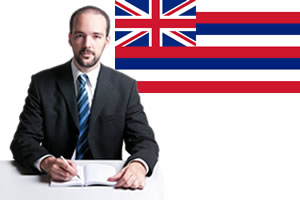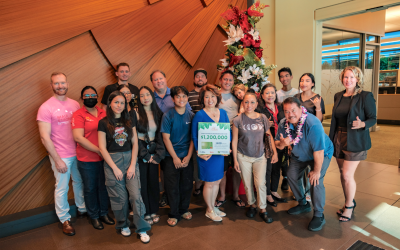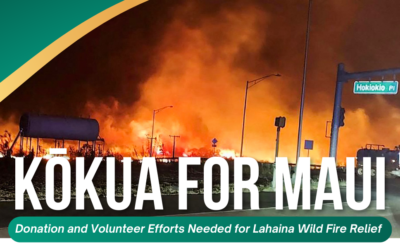 by Makai HR
by Makai HR
It is a fact of life that despite best efforts to create a safe work environment, some employees will be hurt on the job. Employees in blue and gray industries are especially vulnerable to workplace injuries, making workers’ compensation (WC) very important to their employers. Providing workers’ compensation means that if your employees have an accident and become sick or injured as a result, that their care and lost wages are covered by WC insurance
Hawai’i’s workers’ compensation law
Hawaii’s WC law was enacted in 1915 with the purpose of providing compensation for wage loss and medical care expenses to employees who suffer a work-related injury. Under the law employers are required to offer certain benefits without regard to the fault of the employer and prohibits an employee from filing civil action against the employer for work-related injuries or illnesses. All employers, minus a few exceptions, that have one or more employees are required to provide WC coverage for their employees – even temporary and part-time workers.
What happens after an employee is injured on the job?
Employees should immediately report an on the job accident or incident to their supervisor.
Once the employee has reported the event, the employer must file an “Employer’s Report of Industrial Injury” within seven working days and supply the injured employee with a copy of the brochure, Highlights of the Hawaii Workers’ Compensation Law, within three working days of notice of injury.
The employer may still file the report if they believe that the injury is not work-related. Note that when an employee becomes sick or injured on the job and reports the situation to their employer, the employer would be presumed responsible unless they can produce compelling evidence to rebut the worker’s claim.
Who pays for workers compensation claims payouts?
Because of the potential expenses of a WC claim, most employers buy insurance from insurance carriers authorized to transact WC in Hawaii. Hawai’i employers are not legally allowed to require employees to contribute toward this insurance.
Benefits for injured employees include:
• All medical expenses related to the work-site injury or illness. Employees are entitled to choose their medical care providers.
• Temporary total disability benefits-wage loss benefits when disability is diagnosed by a treating doctor.
• Permanent partial disability benefits-payments when an employee endures loss of use of specific areas or functions of the body.
• Permanent total disability benefits-payments if the injured employee cannot return to work because of the injury.
• Disfigurement, discoloration or deformity payments.
• Death-payments to a surviving spouse and dependent children in work-related death cases.
• Vocational rehabilitation if employee is unable to return to prior occupation due to injuries.
What can you do as an employer to fight against rising costs of Workers’ Compensation?
As an employer, it can feel like the chips are stacked against you when it comes to WC. What can you do? Be proactive and document.
• Provide safety training and have all employees in attendance sign off on each training.
• Be sure the training is relevant to the job at hand and/or addressing an identified hazard.
• Work with your agent to do a risk assessment and claims management.
• Develop handbook policies that encourage employees to come back to work quickly.
• Partner with a PEO to help manage all aspects of employment, including WC.
Partnering with Makai HR
Not excited about employer laws? That’s okay; we’ve got you covered through HR outsourcing! When you partner with Makai HR you can get on with the business you are trying to grow while we take care of your employee needs from payroll to taxes, health insurance/benefits and workers’ compensation. You also gain peace of mind that you are in compliance with all of Hawaii’s employer laws (if you’ve ever looked you know that the list is very long). When choosing a PEO to partner with, there are many things to consider including cost, services and technology solutions.
With the cost of doing business in Hawaii at record highs, we know how important it is to keep labor costs in line with revenue. Our plans are priced competitively and include value-added services like time-in/time-out systems. Our three tiers of PEO service plans are tailored to the size of your business and specific needs. We offer a 100% paperless solution which means that your employees can manage their needs through a computer, tablet or phone. We can truly improve your employees work benefits while freeing you up to run your business.
What are you waiting for? Companies who partner with a PEO benefit from 7-9% faster growth, 10-14% lower employee turnover; and they are 50% less likely to go out of business. Contact us today to get started! Call 451-0000 or visit our website at www.MakaiHR.com




0 Comments